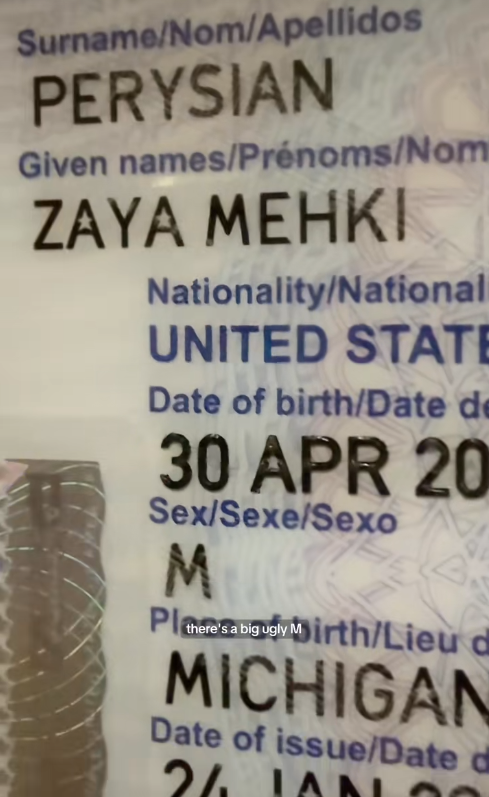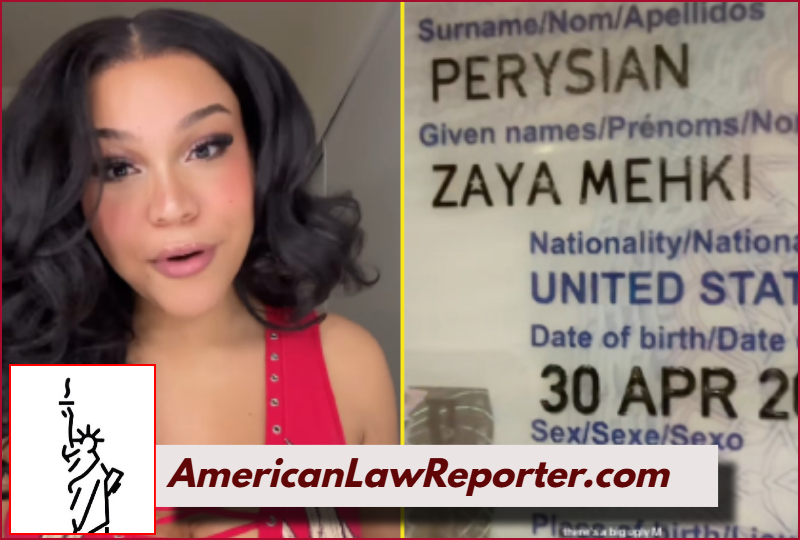A transgender woman known online as Zaya (@zayaperysian on Instagram) has gone viral after posting a video criticizing the U.S. State Department for issuing her a passport that misgenders her as male.
Zaya Mehki Perysian says she has marked as ‘Male’ despite her having completed full gender-affirming surgery and having all other legal documents updated to reflect her female identity.
In the video, which was originally posted in January but has resurfaced and gained traction this week, Zaya explains how her new passport listed her gender as “M” for male.
The stated reason, according to a letter she received, was that the correction was made to “match our record.” Zaya believes the discrepancy stems from a childhood passport that identified her as male.
“All of my other documents say female, and I’ve been fully surgically updated,” Zaya said in the video, holding up the passport as evidence. “There is nothing about me anymore that represents male on the exterior. The only thing that denying to put female on my passport does is put me in danger while traveling.”
Zaya now intends to pursue legal recourse and has publicly called for civil rights attorneys to assist.
“This is a direct violation of my rights as an American citizen under the Equal Rights Amendment,” she stated, stressing that her gender marker update was properly submitted using the application process provided on the U.S. State Department website.

Her video has sparked debate around whether federal agencies are violating civil liberties by relying on historical identity data over current legal and medical documentation.
Legal experts note that, under current U.S. policy, the State Department permits applicants to self-select their gender marker without requiring proof of gender-affirming surgery.
However, Zaya’s case suggests potential inconsistencies in the application of these policies—particularly for transgender individuals who had passports issued under a prior gender.
“This is only the beginning,” Zaya declared in the video. “They want us to hide in fear and be scared of them. But I’m not going anywhere.”

If successful, Zaya could set a legal precedent for challenging discrepancies in federal identity documentation under civil rights frameworks, including the Equal Protection Clause of the Fourteenth Amendment and existing anti-discrimination provisions.
She has yet to publicly name legal counsel or file a lawsuit but remains publicly engaged and is actively seeking legal support through her social media platforms.
Legal analysts say her case may raise questions about the retroactive use of childhood identity records in passport processing, as well as how these policies interact with modern understandings of gender identity and bodily autonomy.
For now, Zaya continues to speak out, insisting that transgender people deserve to live without fear or bureaucratic erasure. “Trans people have been here, and we’re staying here,” she said. “And I will fight this.”

